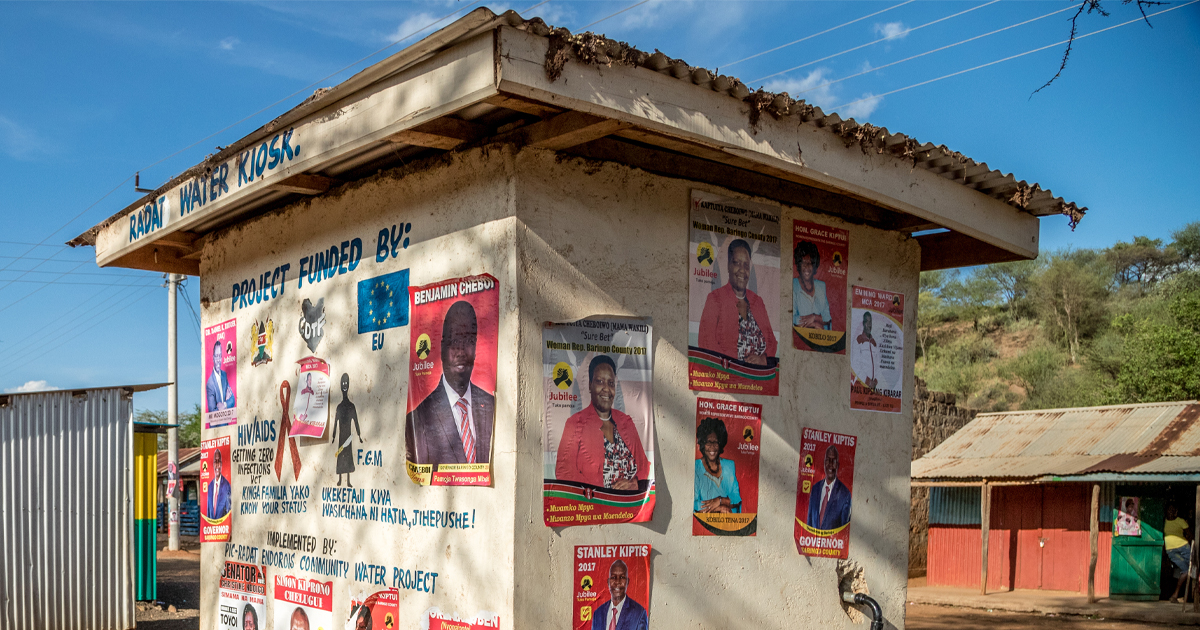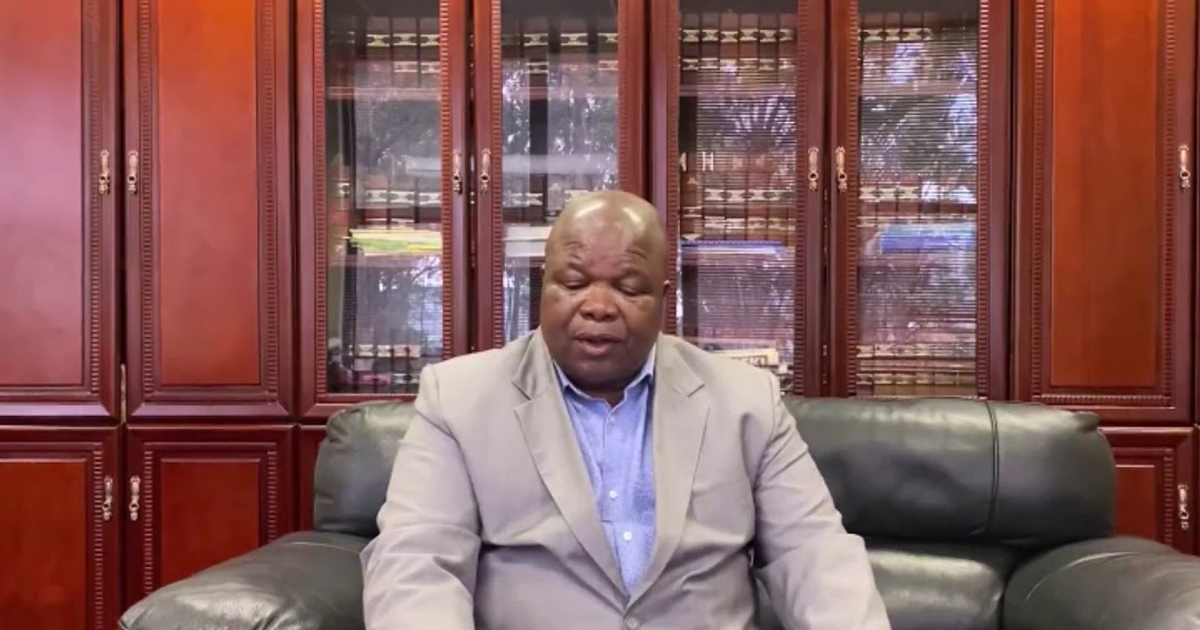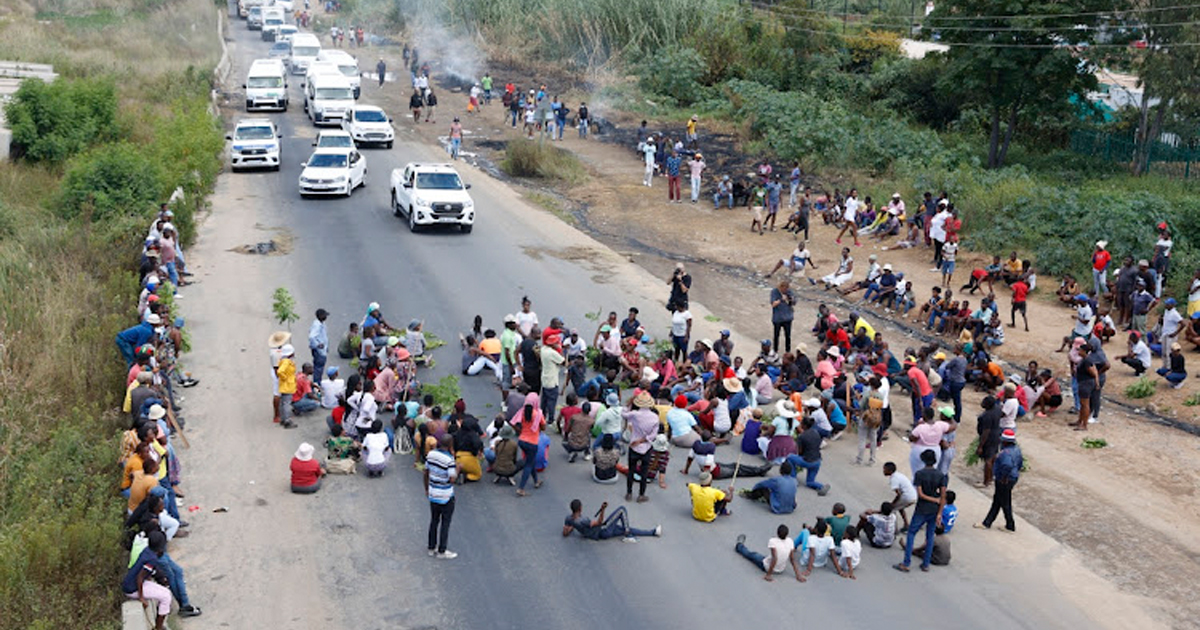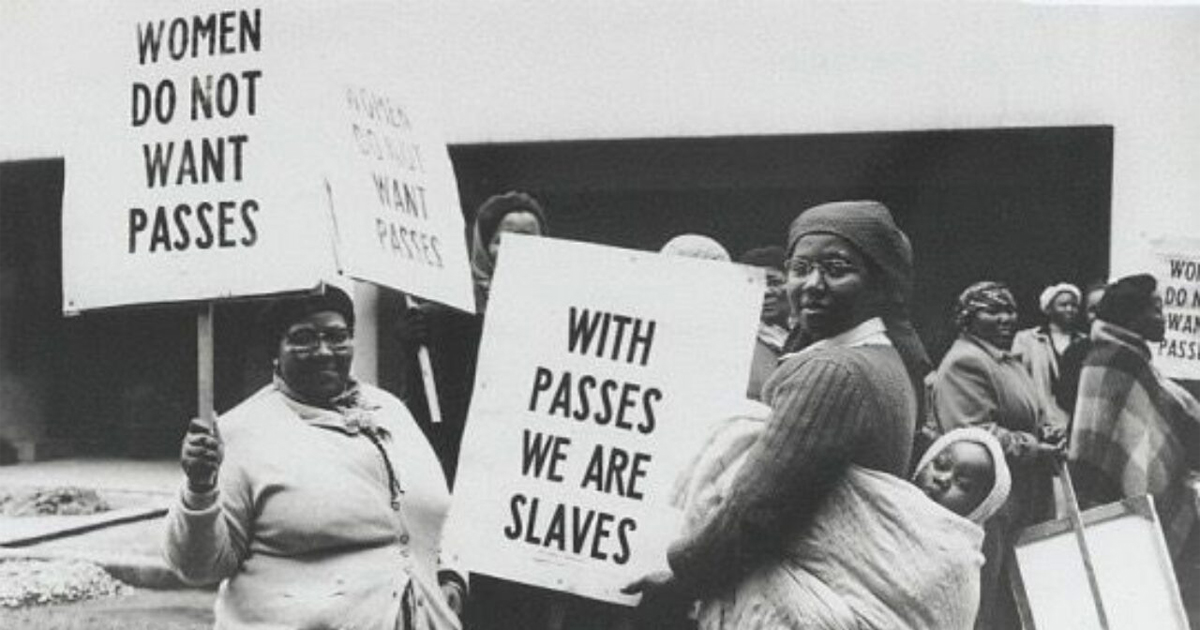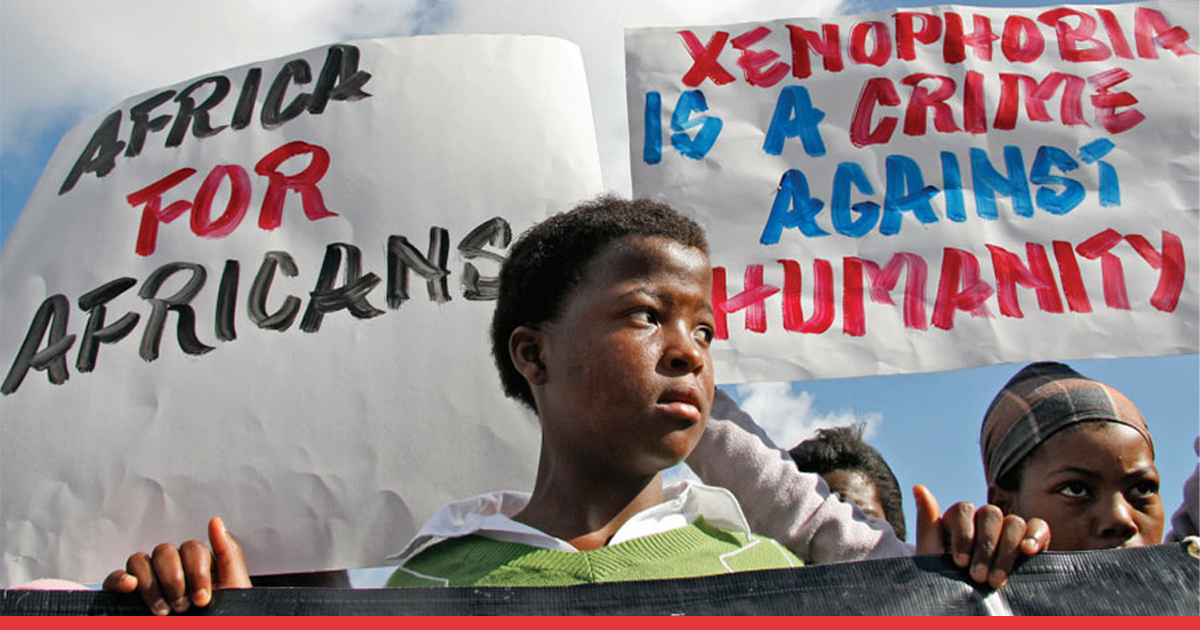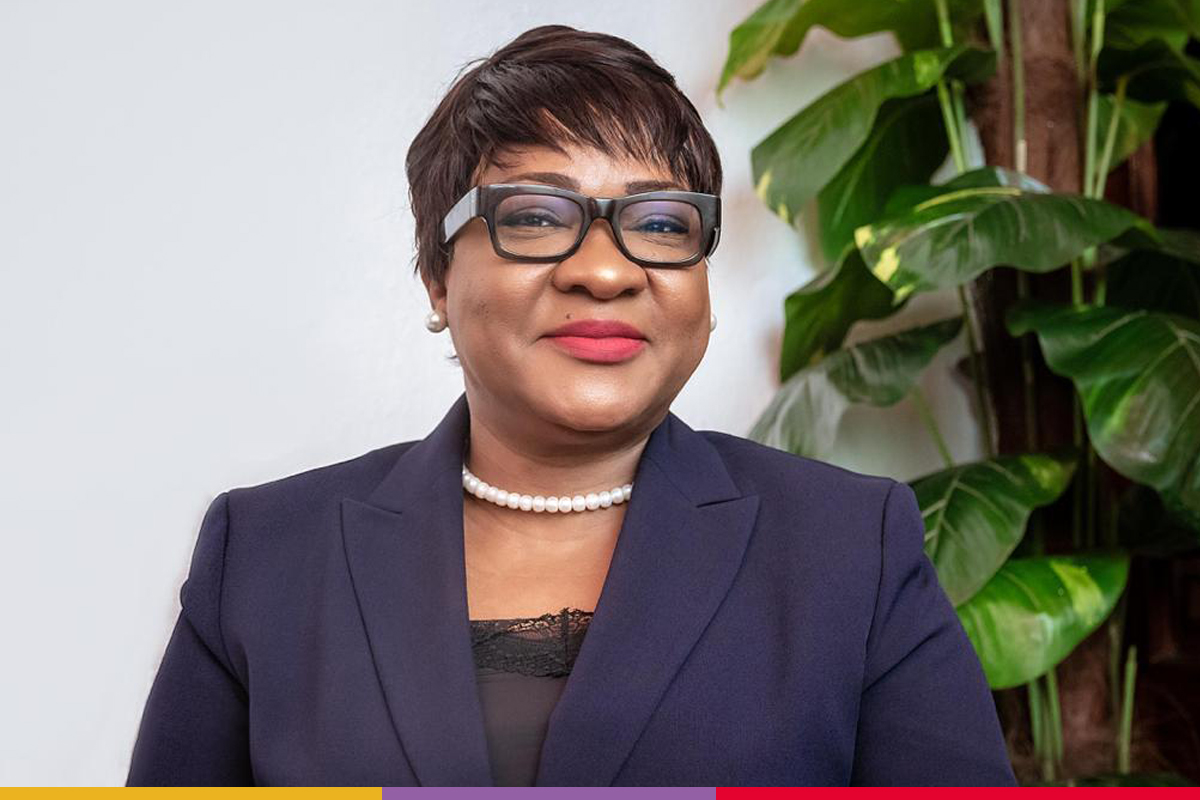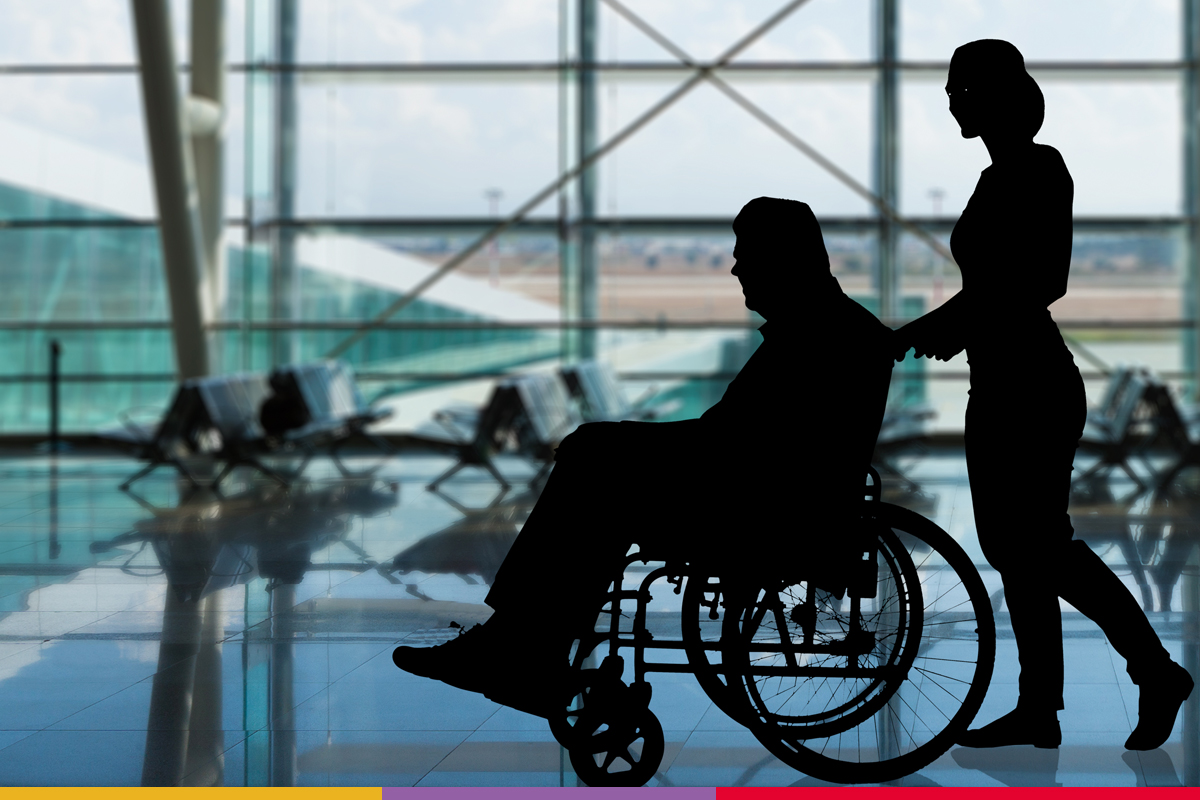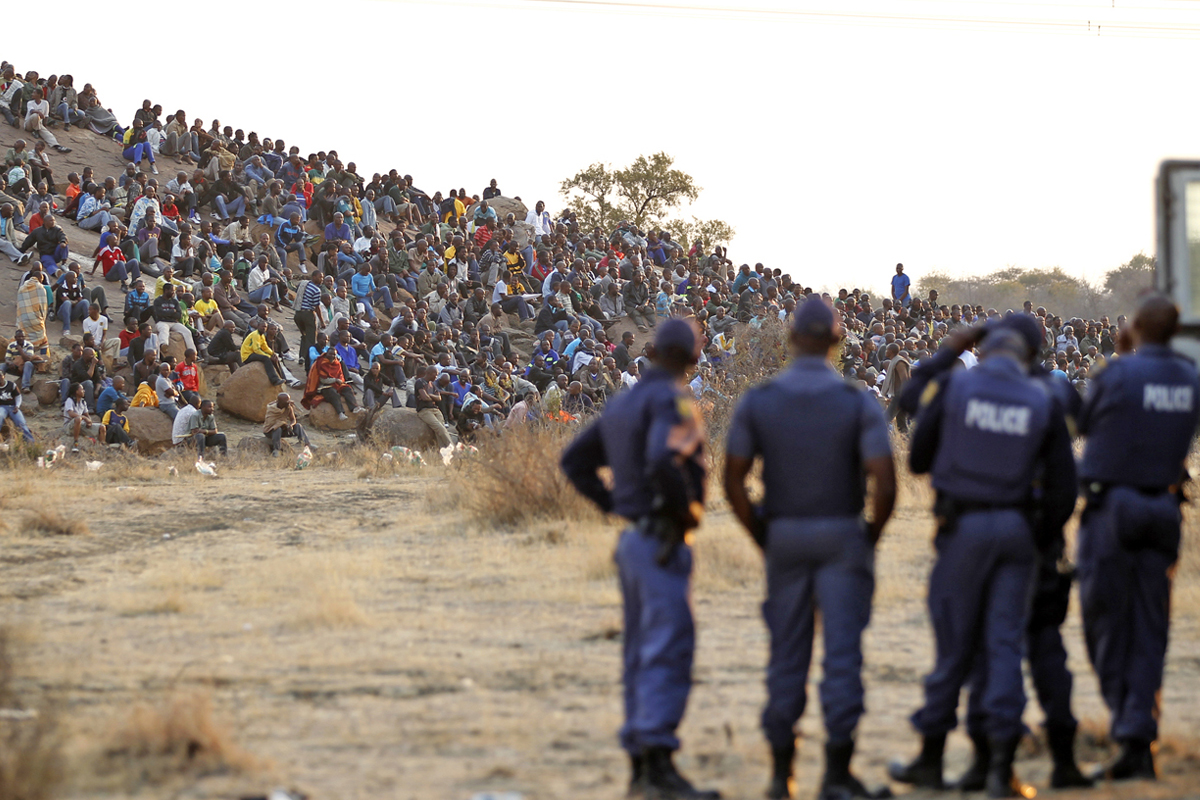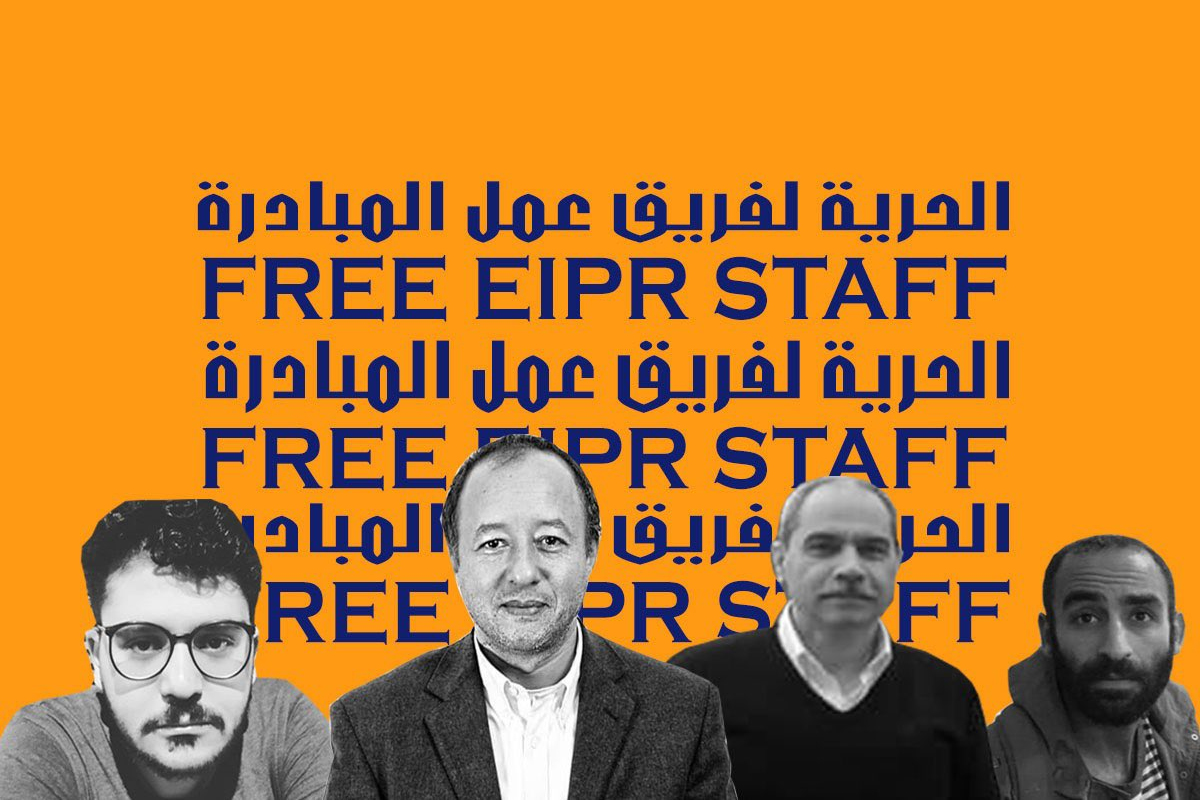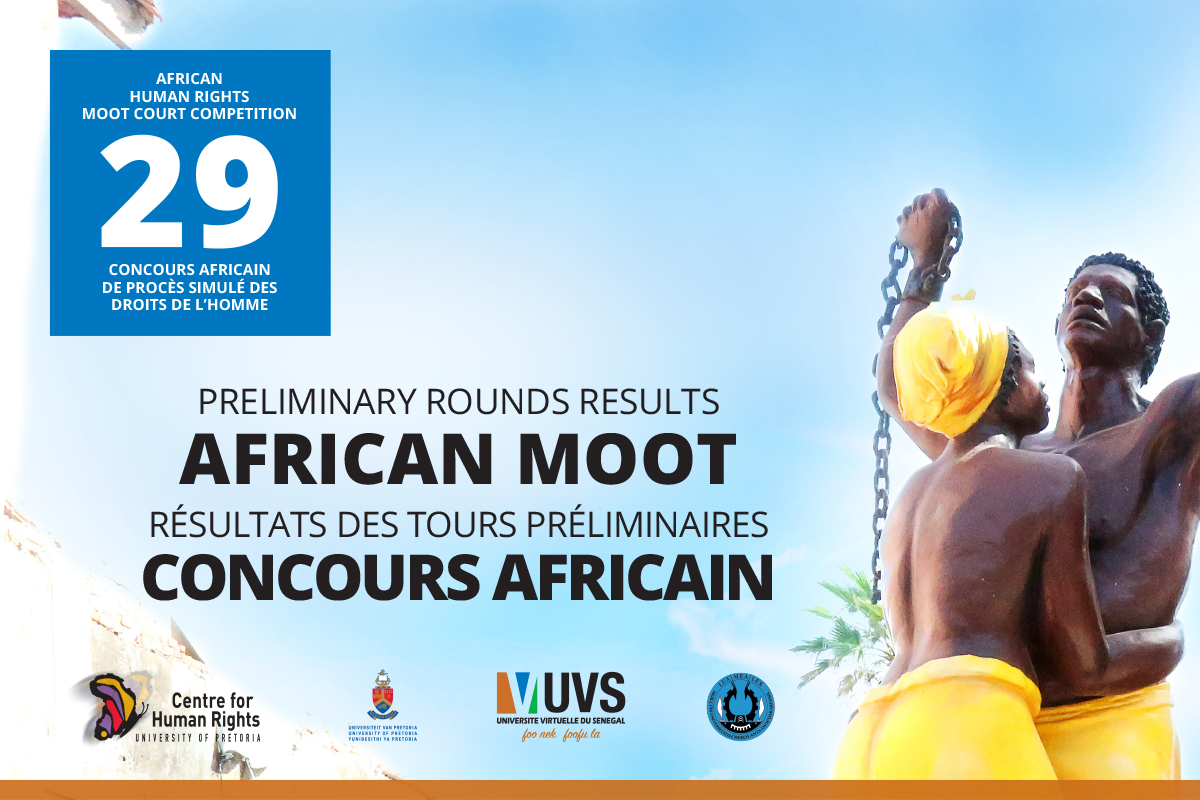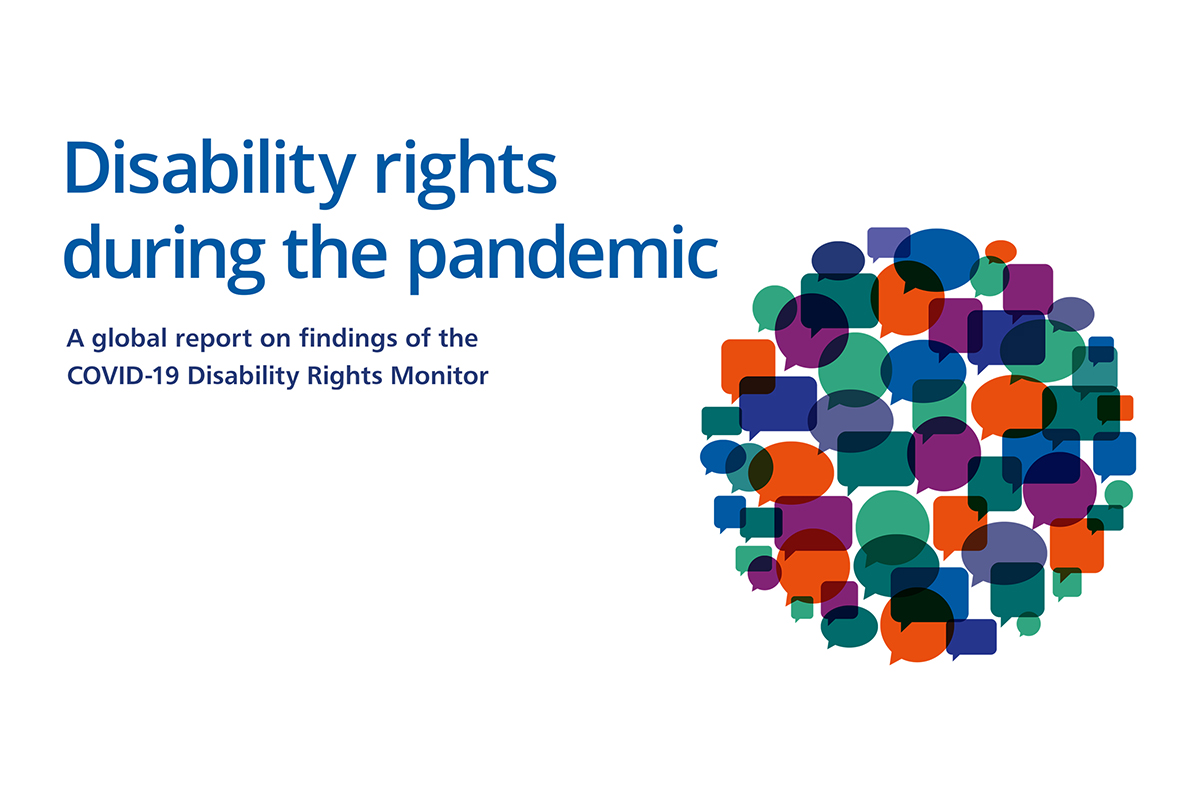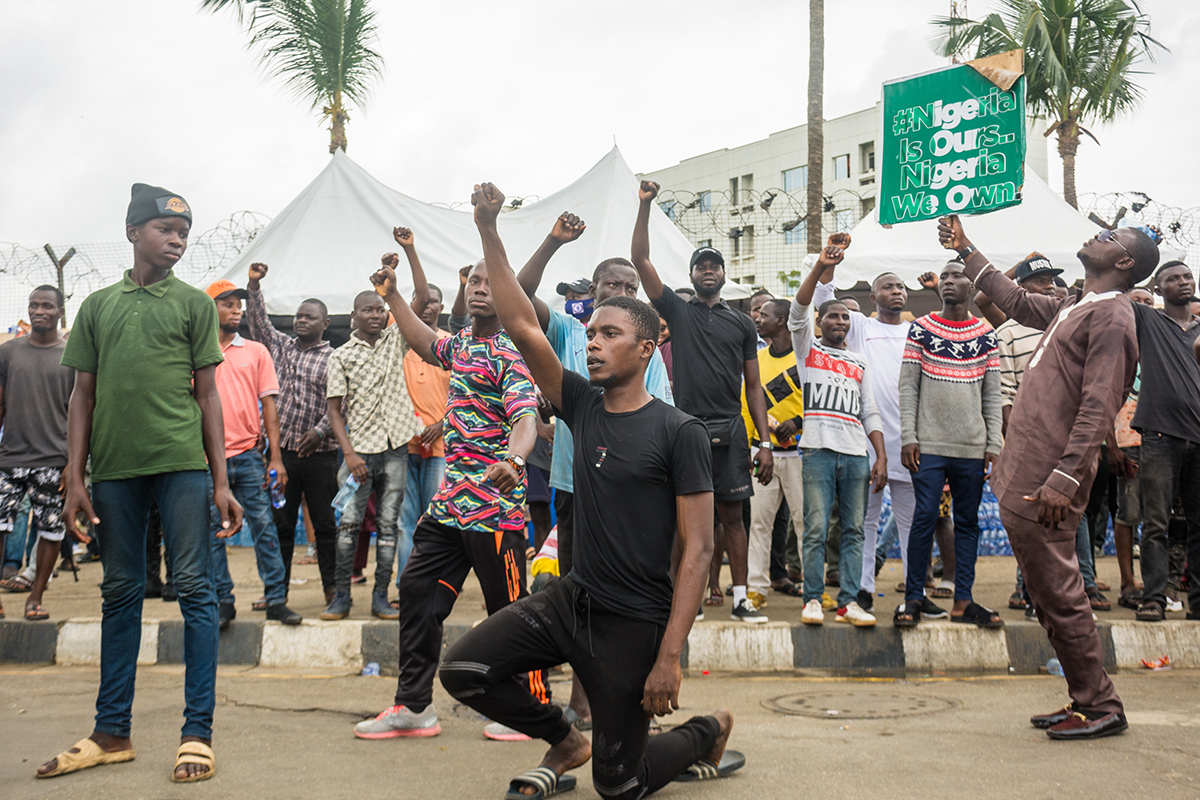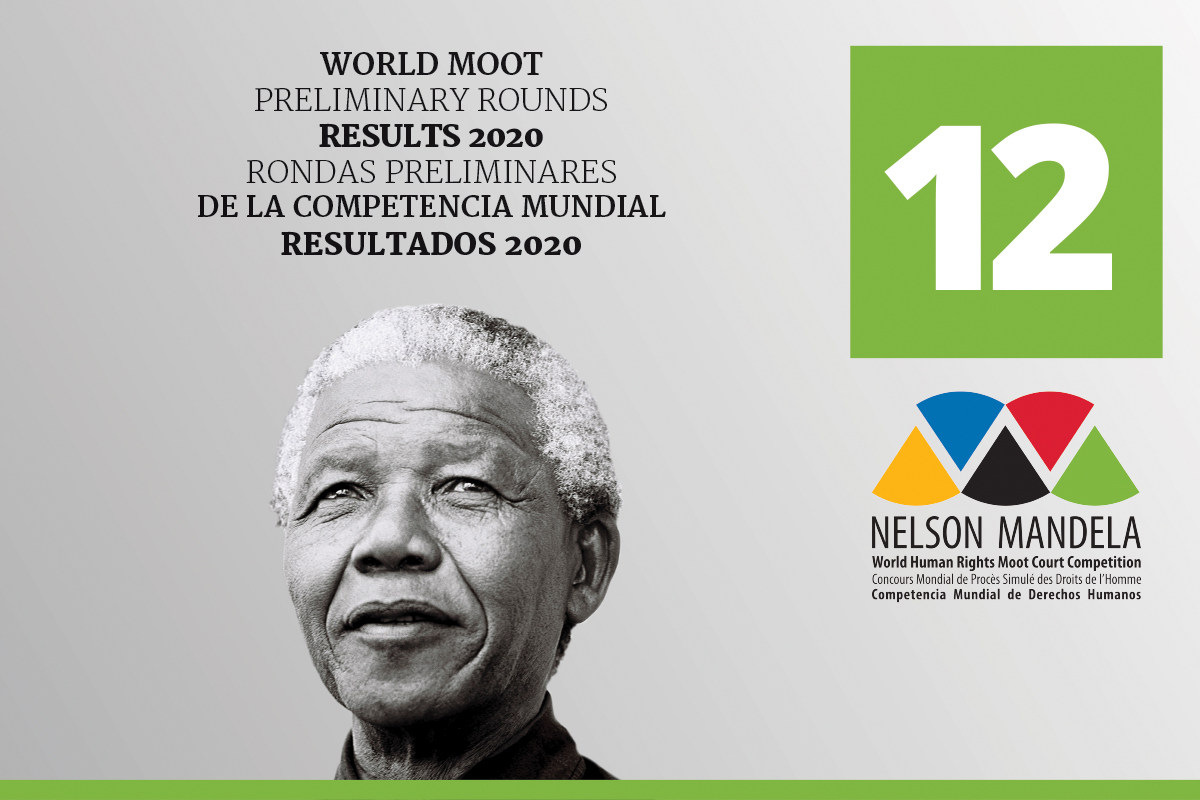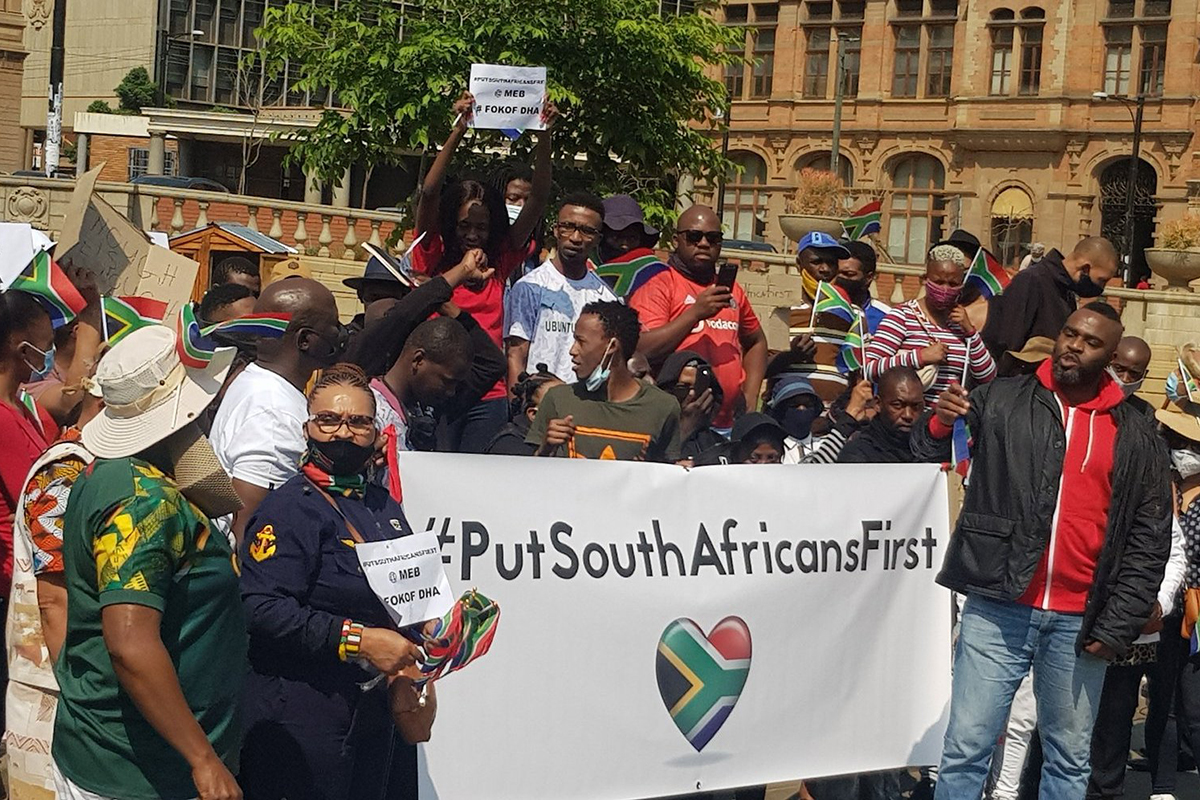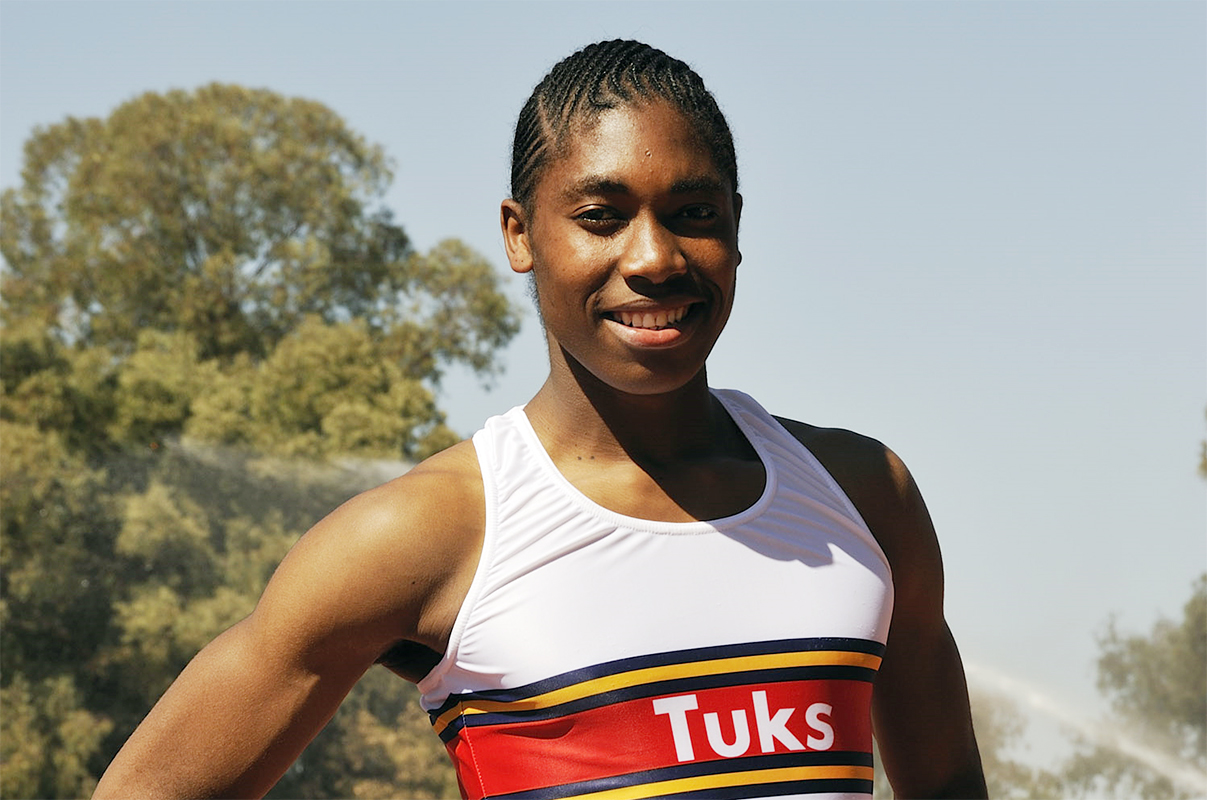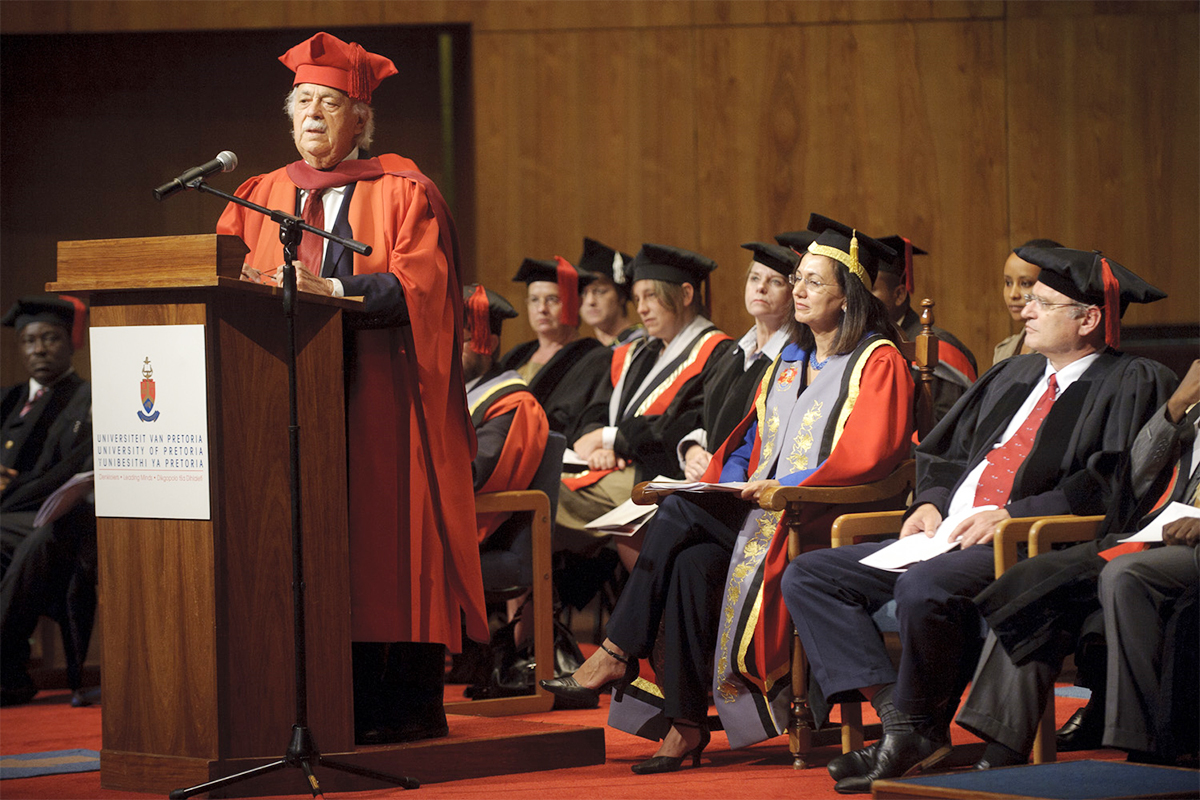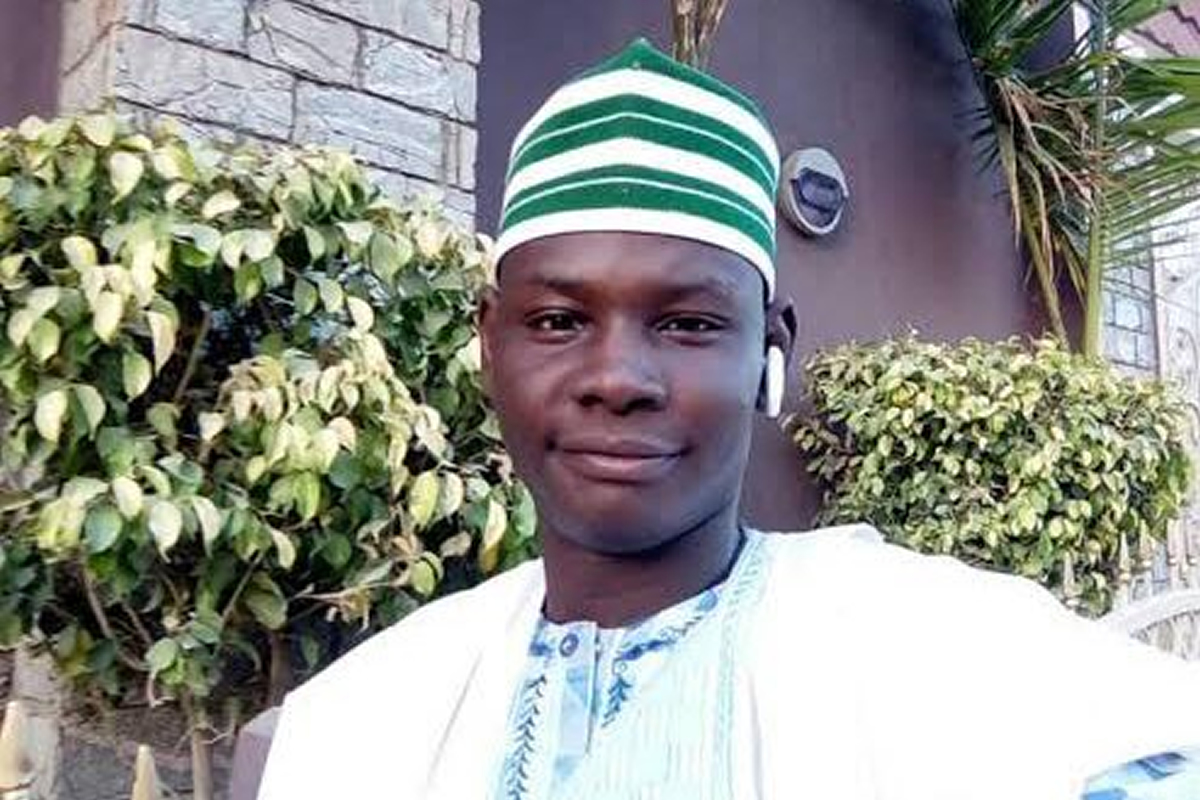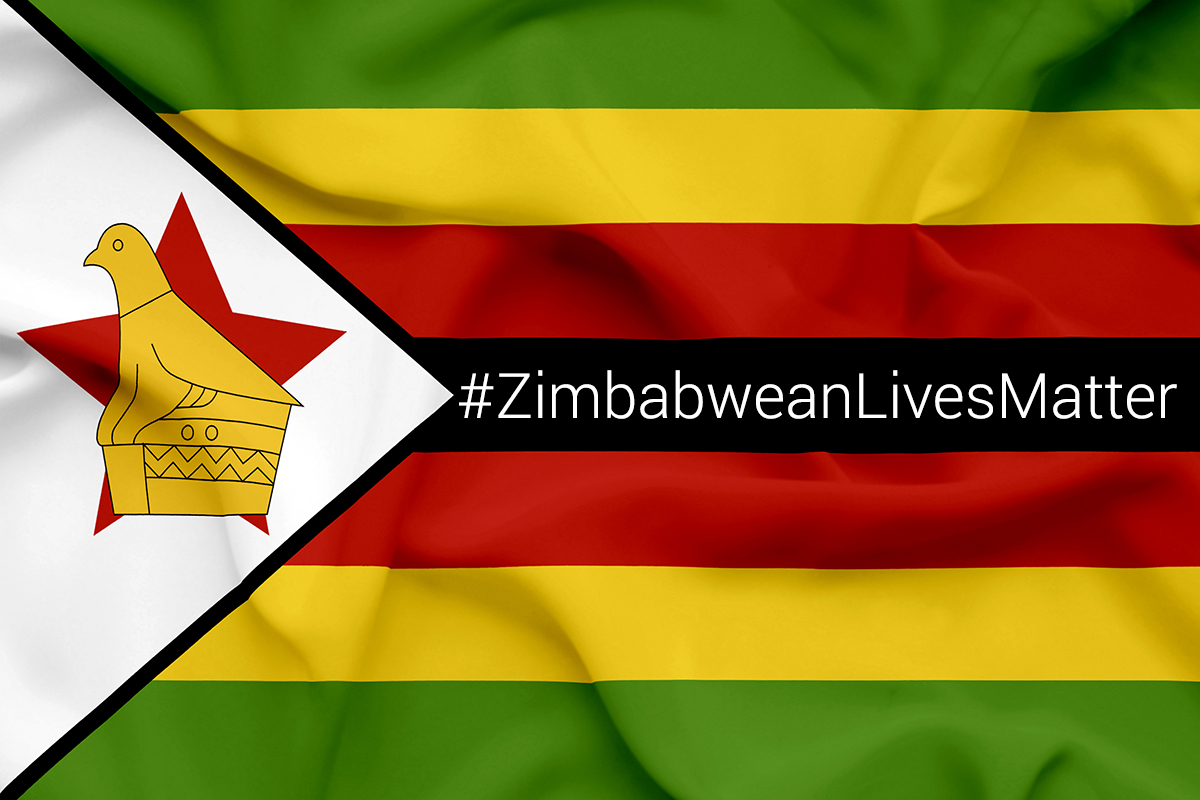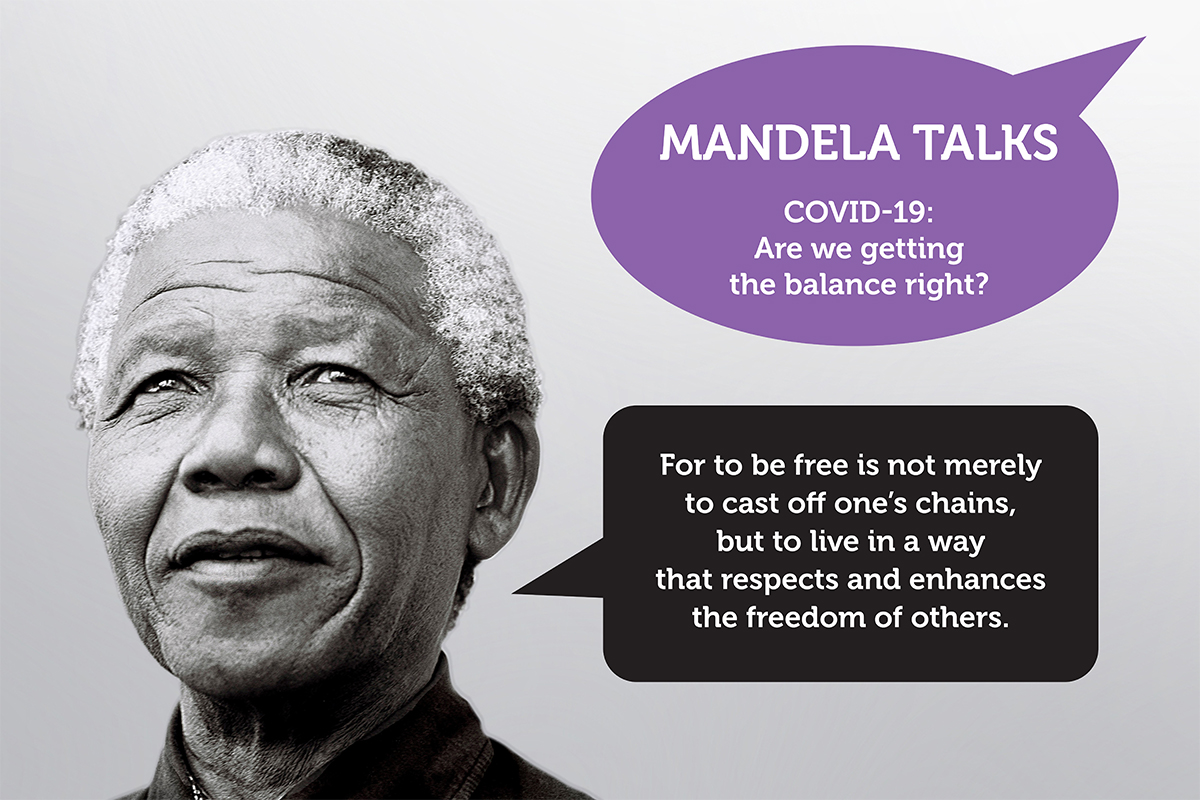- Details
The Centre for Human Rights, University of Pretoria is pleased to announce the continued expansion of the project on assessing State compliance with the Guidelines on Access to Information and Elections in Africa (the Guidelines). The Guidelines is a soft law instrument developed by the African Commission on Human and Peoples’ Rights (African Commission) and adopted during its 61st Ordinary Session in November 2017. It derives from article 9 of the African Charter on Human and Peoples' Rights which guarantees the right of access to information. The Guidelines require the Member States of the African Charter to give effect to the right of access to information through legislative and other measures.
- Details
The Centre for Human Rights, Faculty of Law, University of Pretoria, condemns the disbarring of lawyer Muzi Simelane by Eswatini Chief Justice Bheki Maphalala. The Chief Justice disbarred Mr Simelane by way of notice in April 2018 on the basis of alleged contempt. Since he was banned from appearing in any court in Eswatini, Mr Simelane has not practised law for the past four years. The Chief Justice issued the notice from his chambers without any court hearing, application by the Law Society of Swaziland or determination by a tribunal that the lawyer had committed an act of misconduct. Chief Justice Maphalala purported to act in accordance with sections 139(5) and 142 of the Constitution of Eswatini when he issued the notice mero motu. On 10 June 2022, Mr Simelane challenged his disbarment by the Chief Justice in the Supreme Court of Eswatini after several failed attempts to secure judicial redress.
- Details
The Centre for Human Rights, Faculty of Law, University of Pretoria, condemns the xenophobic attacks against non-citizens in South Africa and in particular the brutal murder of Elvis Nyathi, a Zimbabwean national residing in the Johannesburg township of Diepsloot. Elvis’ brutal murder happened after several inflammatory statements targeting non-citizens, by representatives of political parties and vigilante groups. The state cannot allow vigilante groups to take the law into their own hands and in the name of curbing crime, engage in an extra-judicial killing of a person solely based on their nationality. If this behaviour is not curtailed through application of the rule of law and protection of the human rights of all people in South Africa by the government, more people will be killed and more livelihoods and property will be destroyed.
- Details
Two Mondays, 22 years apart
On Monday 21 March 1960, South Africans protesting a race-based and discriminatory pass-law system converged at a police station in Sharpeville. Their peaceful protest was met with state violence, leading to the death of an estimated 69 people. Today, on this Monday 21 March 2022, we mark ‘Human Rights Day’. We think back to those dark days of pervasive human rights violations and denial of basic human dignity. We are reminded that, despite the many causes for being disgruntled, we have come a long way.
- Details
The Centre for Human Rights, Faculty of Law, University of Pretoria, welcomes the recently improved pace of ratification of the 2018 Protocol to the African Charter on Human and Peoples’ Rights on the Rights of Persons with Disabilities in Africa (African Disability Protocol). In the past 12 months, Mali, Kenya and Rwanda have ratified the African Disability Protocol. We applaud these three states for demonstrating commitment and political will to promote and protect the rights of persons with disabilities. However, three ratifications in four years represent a very slow ratification rate. Fifteen ratifications are required for its entry into force. At the current rate of ratification, it would take decades for the Africa Disability Protocol to take effect. An acceleration in ratifications is therefore urgently needed.
- Details
The Centre for Human Rights, Faculty of Law, University of Pretoria, is concerned about the growing anti-immigrant sentiments and attacks fuelled by the recent xenophobic statements of political parties.
- Details
The Centre for Human Rights, Faculty of Law, University of Pretoria, wishes to congratulate its graduate, Justice Miatta Maria Samba, who has just been elected as a Judge of the International Criminal Court (ICC). She will take her seat on the Court early in 2021.
- Details
The Centre for Human Rights, Faculty of Law, University of Pretoria, is concerned about ongoing discrimination on the basis of disability by airline carriers in Nigeria.
- Details
More than 20 civil society organisations fighting for social justice, supported by the Marikana Commission Chairperson Judge Ian Farlam, state that meaningful engagement with the new draft SAPS Bill is being undermined due to the 2018 report of the Panel of Experts on Policing being kept secret
- Details
The Centre for Human Rights, University of Pretoria, is alarmed by the arrest and detention of three human rights defenders by Egyptian authorities last week, marking a troubling escalation in an ongoing campaign of harassment and intimidation that has thus far failed to silence various organisations dedicated to defending fundamental human rights in the country.
- Details
For the first time in its 29-year history, the African Human Rights Moot Court Competition took place virtually as a result of the COVID-19 pandemic, which resulted in the restriction on movements and the various mitigating measures adopted by several countries on the continent. 29 English-speaking and 7 French-speaking teams took part in the online preliminary rounds from 21 September to 21 October 2020. The semi-final rounds take place from 9 to 14 November, and the final round on 28 November. All these rounds are virtual, using the Zoom platform.
- Details
The Centre for Human Rights, University of Pretoria, is part of a coalition of seven global disability rights organisations that have called for urgent action by States and the international community to halt the catastrophic failure to protect the lives, health, and rights of persons with disabilities during the COVID-19 pandemic.
- Details
The Centre for Human Rights, University of Pretoria, is concerned about ongoing police brutality and human rights violations in Nigeria. These violations are in response to demonstrations by Nigerians expressing concerns about gross human rights violations by the Nigerian Police Force (NPF), particularly by the Special Anti-Robbery Squad (SARS), a tactical unit within the NPF designed to tackle incidents of armed robbery in Nigeria.
- Details
This year's Nelson Mandela World Human Rights Moot Court Competition saw 44 teams (39 English-language and 5 Spanish-language teams) participating for the coveted eight quarter-finalists positions places. Although the Competition is open to French-language teams, regrettably, only two teams submitted its memorials (Ecole Superieure des sciences de Pierre Elliot Trudeau (Esseget) and Catholic University of Bakavu).
- Details
The Centre for Human Rights, University of Pretoria, is distressed by the march on 23 September 2020 against foreign nationals in the City of Tshwane (#PutSouthAfricansFirst). The marchers targeted Nigerians and Zimbabweans, in particular. While declaring that they are concerned about illegal migrants, the marchers spoke of ‘Nigerians’ and ‘Zimbabweans’ in a very general way. The march organisers in one breath expressed concern about illegal migrants and drug trafficking. By making this association between migrant status and drug trafficking, the marchers fell into the trap of generalisation and stigmatisation of all of these non-nationals as both illegal and criminal.
- Details
The Centre for Human Rights, Faculty of Law, University of Pretoria notes with disappointment the decision by the Swiss Federal Supreme Court to effectively ban Caster Semenya from participating in certain competitive sporting events (400m to the mile) unless she reduces her testosterone levels to ‘acceptable female’ levels. This decision follows an appeal by Caster to the Supreme Court against a decision by the Court of Arbitration for Sports (CAS), which upheld the validity of the World Athletics regulations on female athletes with differences of sex development (Eligibility Regulations on Female Classification (Athlete with Differences of Sexual Development). The CAS, based in Lausanne, Switzerland, is a private legal person under Swiss law. Its arbitration awards are subject to the appellate jurisdiction of the Swiss Federal Supreme Court.
- Details
With the passing of Advocate George Bizos on 9 September 2020, South Africa lost an exceptional human rights lawyer who devoted his life to the promotion and fostering of a human rights culture in South Africa. “His life demonstrates the best use to which the law can be put: as a tool to defend those at risk of abuse of power, and as a tool for social transformation and human connection’”, said the Director of the Centre for Human Rights, University of Pretoria, Frans Viljoen.
- Details
The Centre for Human Rights, Faculty of Law, University of Pretoria, has with alarm taken note of the precarious position and imminent risk of irreparable harm to the life of Nigerian singer Yahaya Sharif Aminu. The Centre on 9 September 2020 lodged a request to the African Commission on Human and Peoples’ Rights (African Commission) to take immediate action, in the form of directing an urgent appeal to the Head of State, or any other appropriate form.
- Details
The Centre for Human Rights, Faculty of Law, University of Pretoria, welcomes the appointment by President Ramaphosa of two special envoys to engage with the deteriorating conditions in Zimbabwe. However, we regret the characterisation of a situation of serious human rights violations as “difficulties”, and urge President Ramaphosa to ensure that South Africa’s approach is not one of “quiet diplomacy” at the expense of addressing the underlying issues of impunity and lack of accountability. Given that South Africa is currently chairing the African Union, it is of increased importance for President Ramaphosa to take a clear stand against erosions of constitutional governance and the rule of law, and to insist on accountability for violations of human rights in Zimbabwe.
- Details
As part of Mandela Month, during which we remember the birth date of Nelson Rolihlahla Mandela on 18 July 1918, the Centre for Human Rights, Faculty of Law, University of Pretoria, in collaboration with Leading Like Mandela Institute and the Thembekile Mandela Foundation, hosted the first in a series of online Mandela Talks.

